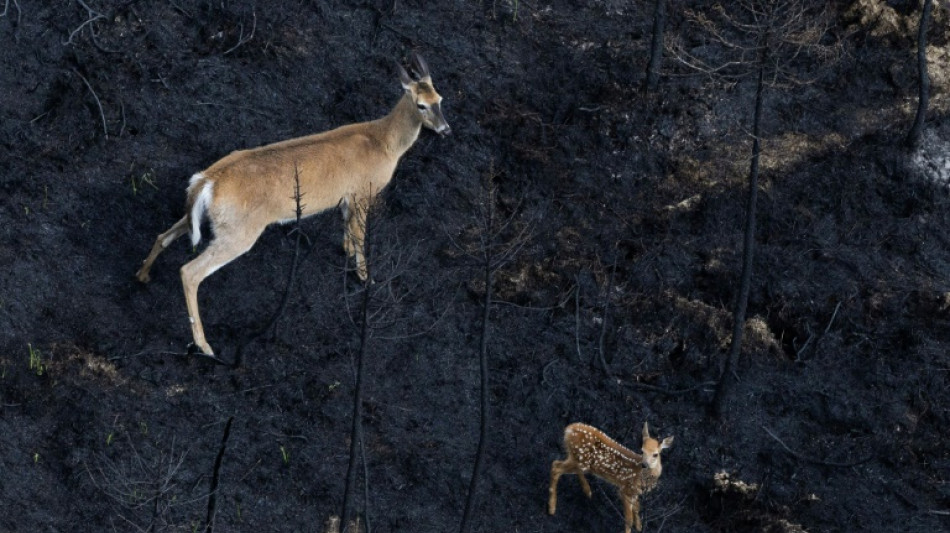
-
 Japan election results confirm super-majority for Takaichi's party
Japan election results confirm super-majority for Takaichi's party
-
Unions rip American Airlines CEO on performance

-
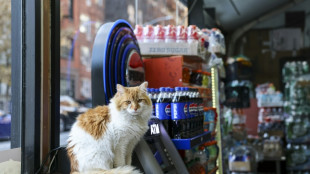 New York seeks rights for beloved but illegal 'bodega cats'
New York seeks rights for beloved but illegal 'bodega cats'
-
Blades of fury: Japan protests over 'rough' Olympic podium

-
 Zelensky defends Ukrainian athlete's helmet at Games after IOC ban
Zelensky defends Ukrainian athlete's helmet at Games after IOC ban
-
Jury told that Meta, Google 'engineered addiction' at landmark US trial

-
 Despite Trump, Bad Bunny reflects importance of Latinos in US politics
Despite Trump, Bad Bunny reflects importance of Latinos in US politics
-
Australian PM 'devastated' by violence at rally against Israel president's visit

-
 Vonn says suffered complex leg break in Olympics crash, has 'no regrets'
Vonn says suffered complex leg break in Olympics crash, has 'no regrets'
-
YouTube star MrBeast buys youth-focused banking app

-
 French take surprise led over Americans in Olympic ice dancing
French take surprise led over Americans in Olympic ice dancing
-
Lindsey Vonn says has 'complex tibia fracture' from Olympics crash

-
 US news anchor says 'hour of desperation' in search for missing mother
US news anchor says 'hour of desperation' in search for missing mother
-
Malen double lifts Roma level with Juventus

-
 'Schitt's Creek' star Catherine O'Hara died of blood clot in lung: death certificate
'Schitt's Creek' star Catherine O'Hara died of blood clot in lung: death certificate
-
'Best day of my life': Raimund soars to German Olympic ski jump gold

-
 US Justice Dept opens unredacted Epstein files to lawmakers
US Justice Dept opens unredacted Epstein files to lawmakers
-
Epstein taints European governments and royalty, US corporate elite

-
 Three missing employees of Canadian miner found dead in Mexico
Three missing employees of Canadian miner found dead in Mexico
-
Meta, Google face jury in landmark US addiction trial

-
 Winter Olympics organisers investigate reports of damaged medals
Winter Olympics organisers investigate reports of damaged medals
-
Venezuela opposition figure freed, then rearrested after calling for elections

-
 Japan's Murase clinches Olympic big air gold as Gasser is toppled
Japan's Murase clinches Olympic big air gold as Gasser is toppled
-
US athletes using Winter Olympics to express Trump criticism

-
 Japan's Murase clinches Olympic big air gold
Japan's Murase clinches Olympic big air gold
-
Pakistan to play India at T20 World Cup after boycott called off

-
 Emergency measures hobble Cuba as fuel supplies dwindle under US pressure
Emergency measures hobble Cuba as fuel supplies dwindle under US pressure
-
UK king voices 'concern' as police probe ex-prince Andrew over Epstein

-
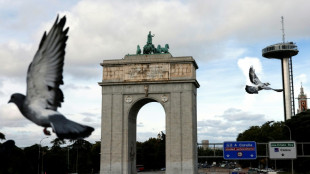 Spanish NGO says govt flouting own Franco memory law
Spanish NGO says govt flouting own Franco memory law
-
What next for Vonn after painful end to Olympic dream?

-
 Main trial begins in landmark US addiction case against Meta, YouTube
Main trial begins in landmark US addiction case against Meta, YouTube
-
South Africa open T20 World Cup campaign with Canada thrashing

-
 Epstein accomplice Maxwell seeks Trump clemency before testimony
Epstein accomplice Maxwell seeks Trump clemency before testimony
-
Discord adopts facial recognition in child safety crackdown

-
 Some striking NY nurses reach deal with employers
Some striking NY nurses reach deal with employers
-
Emergency measures kick in as Cuban fuel supplies dwindle under US pressure
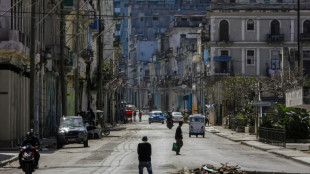
-
 EU chief backs Made-in-Europe push for 'strategic' sectors
EU chief backs Made-in-Europe push for 'strategic' sectors
-
Machado ally 'kidnapped' after calling for Venezuela elections

-
 Epstein affair triggers crisis of trust in Norway
Epstein affair triggers crisis of trust in Norway
-
AI chatbots give bad health advice, research finds

-
 Iran steps up arrests while remaining positive on US talks
Iran steps up arrests while remaining positive on US talks
-
Frank issues rallying cry for 'desperate' Tottenham

-
 South Africa pile up 213-4 against Canada in T20 World Cup
South Africa pile up 213-4 against Canada in T20 World Cup
-
Brazil seeks to restore block of Rumble video app

-
 Gu's hopes of Olympic triple gold dashed, Vonn still in hospital
Gu's hopes of Olympic triple gold dashed, Vonn still in hospital
-
Pressure mounts on UK's Starmer as Scottish Labour leader urges him to quit

-
 Macron backs ripping up vines as French wine sales dive
Macron backs ripping up vines as French wine sales dive
-
Olympic freeski star Eileen Gu 'carrying weight of two countries'

-
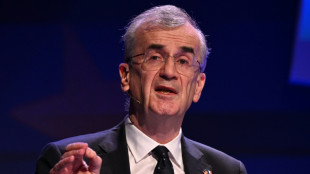 Bank of France governor Francois Villeroy de Galhau to step down in June
Bank of France governor Francois Villeroy de Galhau to step down in June
-
Tokyo stocks strike record high after Japanese premier wins vote


Canada's wildfires take devastating toll on wildlife
No droppings, tracks, nests or other traces of wildlife -- Canada's boreal forests were devastated by record wildfires this year.
In the woodlands of Quebec province, hunter Paul Wabanonik searches for fresh moose tracks on his Indigenous tribe's ancestral lands, which had sustained him and his family.
"Normally, we would see traces everywhere," says the Ashinabe tribesman. But "it's like a desert," he says as he leads AFP journalists along a forest trail.
People in his village, hundreds of kilometers north of Montreal, was forced to flee advancing wildfires in June.
A few green shoots are just now starting to sprout in the once-lush green forest left charred by the fires.
Heading into the fall, the foliage would normally explode with brilliant red, orange and yellow colors, but it is now all blackened.
With no forest canopy, there is nothing left to hunt in order to feed Wabanonik and his family, and there's little chance of wildlife returning any time soon, he laments.
"We don't have a precise idea of the number of animals that died, but it's hundreds of thousands," says Annie Langlois, a biologist for the Canadian Wildlife Federation.
Beavers, coyotes, skunks, wolverines, foxes, bears -- the Canadian boreal forest is home to 85 species of mammals, 130 of fish and 300 of birds, including many migratory birds.
But it has been devastated by this year's record wildfire season, with more than 18 million hectares burned -- an area close to the size of Tunisia.
- Smoke particles -
The biologist notes that certain species can quickly become trapped, because they do not have the capacity to fly or run fast enough and over long distances in the face of very intense and rapidly advancing fires.
And in certain regions, the fires struck very early in the season, therefore shortly after gestation, leaving no chance for hatchlings or sucklings to escape.
The consequences are severe also for aquatic fauna. In addition to ash that blankets lakes and rivers, soil erosion caused by the loss of vegetation alters water quality.
"Lakes with clear, clear water in the Canadian Shield will fill with algae which will suck the oxygen from the water, so there will be less for the animals," Langlois explains, referring to a large area of exposed rock.
The chemical composition of wildfire smoke particles is also different from particles from other sources of pollution, such as car emissions or industrial pollution.
It contains a greater proportion of carbon-based pollutants in various chemical forms that are sometimes deposited hundreds of kilometers from the fires.
These fumes have acute or chronic effects on the health of wildlife, says Matthew Mitchell of the University of British Columbia.
"Young animals are often more susceptible to the effects of smoke, as are humans," he adds, and "even marine animals like whales and dolphins are affected when they emerge to breathe."
In Canada, nearly 700 species are already considered threatened, largely due to habitat destruction from logging and other encroachment.
Over the longterm, wildfires constitute an additional threat to wildlife.
This is the case for caribou. This Canadian emblem which lives in old forests , feeding on lichen, is unlikely to bounce back for several years from the ravages of fires.
"If the moose is likely to do well, the caribou will do less well, given that it is in a rather precarious situation," worries Gabriel Pigeon, professor at the University of Quebec in Abitibi-Temiscamingue.
The fires could also accentuate a phenomenon already observed by researchers and linked to climate change and the upheaval of ecosystems: certain species have moved north.
Thus is the case for a lynx that Pigeon follows using a radio collar. It has taken refuge 300 kilometers (185 miles) from its territory while its home range is generally 25 square kilometers.
The return of animals to burned areas will vary from one species to another. For some, it could take years.
O.Karlsson--AMWN



